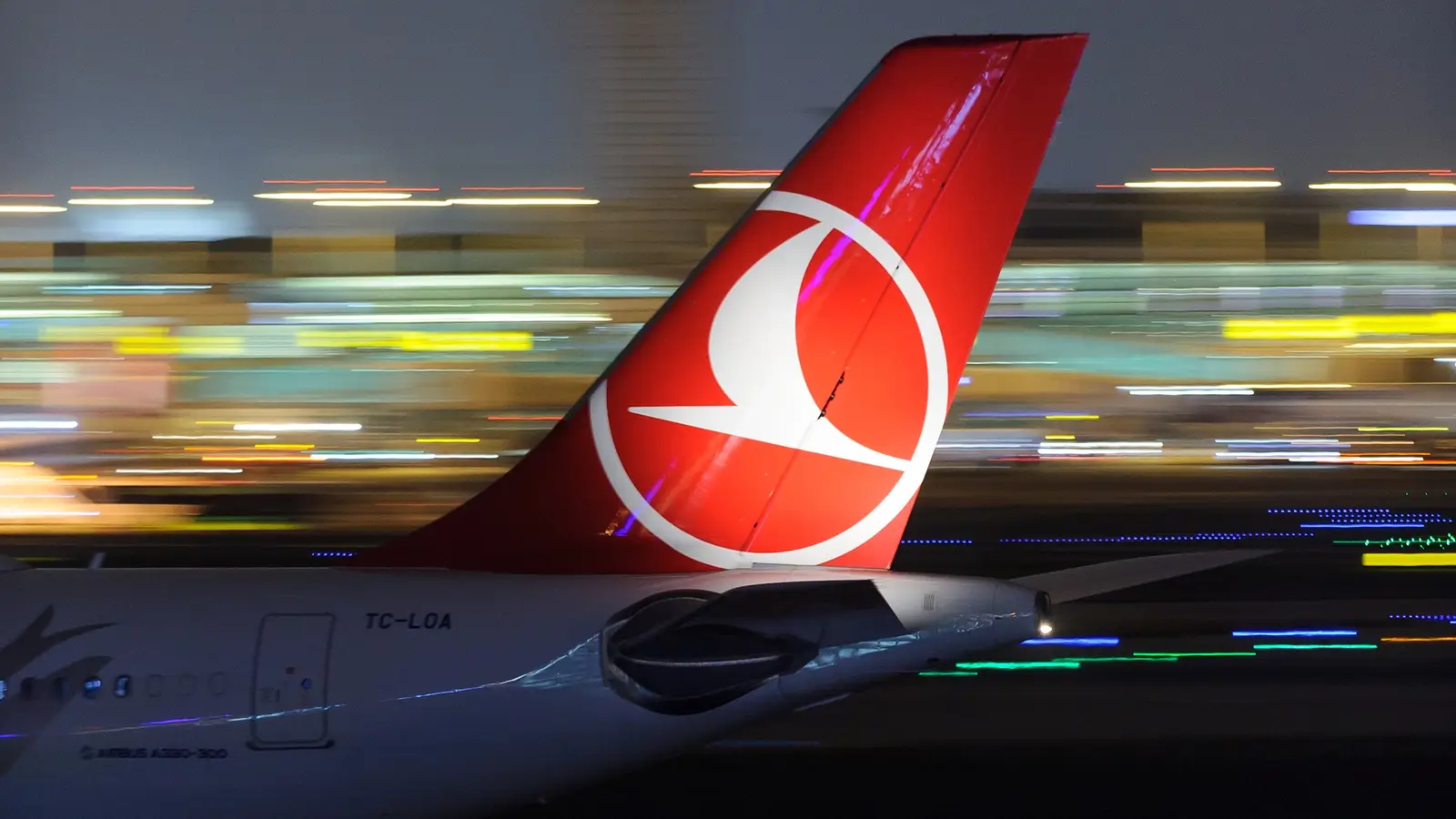
Next time you take a flight, there may be a new complimentary inclusion, as free onboard water is being mandated for passengers in some countries. While many airlines around the world already offer free onboard snacks and drinks, some budget carriers charge for almost everything, including H2O.
As reported by Turkish media outlet, Focus Travel News (FTN), Abdulkadir Uraloğlu, Turkey’s Minister of Transport and Infrastructure, has now required the Turkish General Directorate of Civil Aviation to mandate all airlines operating within and from the country to provide all passengers a minimum of 6.7 ounces (200 milliliters) of complimentary water onboard. This is regardless of the overall total flight duration.
Airlines Opt To Serve Water From A Bottle
Airlines typically provide water (free or at a cost) from a bottle due to water quality concerns and overall taste, especially when stored in the aircraft’s water storage tanks. On most airlines, this would be served in a cup, but from a larger bottle administered by the crew. The choice to serve bottled water is due to the accumulation of dissolved minerals that airlines could encounter when collecting water in tanks from various airports. This accumulation over time can lead to the development of unpleasant-tasting compounds.
With airlines operating both domestic and international flights, the water quality and composition of various destinations can differ. These varying mineral and chemical levels can react when mixed with other water, leading to undesirable tastes. If stored in a tank, these could not be easily accessible for cleaning or sterilizing processes, and would add additional maintenance issues over time.
While water from an airplane tank could not intentionally be harmful, it could carry a potential poor taste, with the chance of contamination, which is why airlines prefer to provide bottled water services onboard. This process allows for consistent and safe potable water for all passengers and adds to the onboard experience. This improves the onboard passenger perception, but also minimizes the chance of passengers becoming ill due to the water provided onboard.
Water For Free For Turkish Travelers
Turkey’s new directive has mandated that all airlines that carry passengers within or from Turkey must provide complimentary water of at least 6.7 ounces (200 milliliters) to all passengers. This directive includes both domestic and international travel, with no stipulation on the minimum or maximum flight duration. The decision, made by the Transport and Infrastructure Minister, aims to enhance comfort, international service standards, and improve passenger health and well-being.
Both domestic and foreign carriers are mandated to comply with the complimentary water requirement immediately. This comes as Turkey is in the midst of its busy summer travel schedule, where the Turkish Government wants to ensure that flights operating to and from the country cater to the well-being of its passengers. When dehydrated, they could suffer serious health issues, including headaches, medical emergencies, and reduced concentration.
As already mentioned, the flight duration will not be taken into consideration with this new mandate, meaning that even short domestic flights, such as Istanbul Airport (IST) to Izmir Adnan Menderes Airport (ADB), which covers a short 193 nautical miles (358 kilometers), and takes just one hour, ten minutes, gate to gate.
Improving The Onboard Experience
As explained by the Turkish General Directorate of Civil Aviation, all airlines will be required to provide free drinking water for the duration of the flight. This change in regulation is part of broader efforts for airlines operating in and from Turkey to align with international best practice. This new inclusion, for airlines not already offering free water, is believed to now meet the basic need, which is that drinking water should be standard business for global aviation operators.
Not only will the move lead to better overall passenger wellbeing, but it will also be an indirect way to boost the perspective of Turkey as an international aviation destination. Offering free water is expected to improve customer satisfaction and build a stronger reputation for Turkish businesses. Adaptations to current onboard service procedures for airlines operating within and from Turkey will need to be made immediately to ensure compliance with the new set of aviation guidelines. Flights required to comply:
As explained by Turkish Airlines, the flag carrier of Turkey, drinking liquids while flying is important, as it is easy to become dehydrated. On long-haul flights, it is recommended to consume at least two glasses of water.
Combating The Dryness Of A Flight
It is relatively easy to become dehydrated when flying, due to low humidity within the aircraft cabins. This is a result of recycled air conditioning, which is typically much drier than usual indoor environments. This dry air can lead to quicker water evaporation, specifically from your skin and lungs. The cabins’ overall low pressure can lead to faster breathing, which, in turn, can result in fluid loss. As you travel, your body can lose more fluids than normal, which is why it is recommended to drink additional water or avoid alcohol or caffeinated drinks when flying, to ensure you remain hydrated.
A low moisture content in cabin air will cause water to evaporate more quickly through the body, as the humidity onboard can be around 20% lower than when on the ground. Insufficient fluid intake, combined with lower cabin pressure, can cause your body to unconsciously breathe faster and deeper, leading to dehydration quickly.
Consuming alcohol, caffeine, or salty snacks is a common factor that can increase body water loss. This is particularly true for travelers who may intentionally avoid drinking excessive fluids onboard as they opt to avoid the need to use small, inconvenient, cramped, and busy onboard toilets.
How You Can Prevent Becoming Dehydrated Onboard
The next time you are on a flight, whether it’s to Turkey or not, there are plenty of other steps that can be taken to prevent dehydration while traveling. Where possible, consume plenty of water, even throughout the flight. While many of us like to celebrate going abroad with an alcoholic drink, this can actually lead to increased dehydration, so make sure not to overindulge.
Our eyes and skin can also suffer from dehydration, and suggestions to use a good moisturizer and eye drops can help combat the dry effects of cabin air. Contact lenses can also become dry and irritating, so it is best practice to opt for standard glasses to minimize the risk of discomfort. Using nasal sprays can help moisturize nasal passages, while carrying a reusable drink bottle can mean you can ask flight attendants to fill it (when complimentary water is standard).
Most importantly, it is crucial to stay aware of your body and read the natural signs. Dry mouth, headaches, dry skin, decreased urination, lethargy, and irritability can be immediate signs that you are becoming dehydrated, and you should look to consume more water. As analyzed by ELYTE Hydration, it is expected that when traveling on a long-haul flight, you can lose around 4% of your body’s total stored water, which can increase to 8% on ultra-long-haul flights. While on domestic flights, this water loss can be substantially less, it is still important to remain hydrated.
A Glass Of Water On Your Next Flight
Turkey’s latest mandate will be applied to all domestic and international carriers operating from Turkey, and passengers will be able to request complementary water immediately. While it remains up to each airline to decide how this is served, many will likely provide complimentary cups of water during their onboard meal and drinks service. It should be perfectly acceptable to ask for complimentary water at any time, except when the seatbelt sign is on, or during takeoff or landing.
Bringing your own empty refillable bottle can be a good, quick, and environmentally friendly way to receive water; however, not all carriers will be permitted to fill your bottle all the way to the top. It is worth noting that while no liquids over 3.3 ounces (100 milliliters) are permitted through airport security, most airports offer treated water fountains at both the landside and airside locations in the airport terminal.



